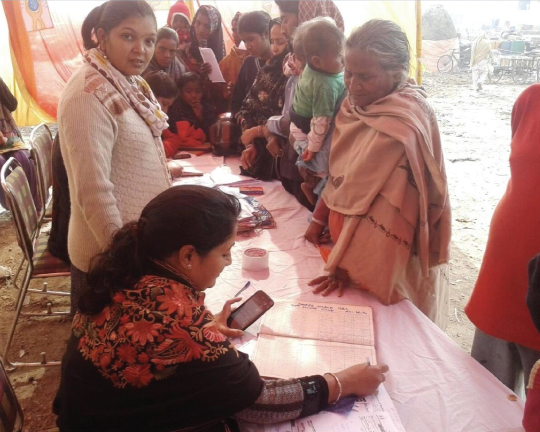
Health Care


Health Care
An English teacher was brought in to conduct regular English classes to improve the proficiency of children in around 12 government schools in order to boost their confidence at looking for better opportunities in the future. We then moved on to providing scholarships to hundreds of children and around 400 children continue to benefit from this every year. We’ve helped thousands of children so far with over 2000 scholarships and wish to continue to reach more people.Free health camps are organized in various parts of the Country for a short period. They are arranged according to the specific health needs of a particular location. Their main aim is to develop long-term health-seeking functions & building awareness for the most common illnesses, methods of family planning, hygiene, nutrition and sanitation. India is a country that still strives to provide basic health services to the people. Mostly, inadequate health services are seen in rural areas. According to verified reports from government sources, 45 children die each hour because of respiratory diseases; one child dies every 2 minutes due to diarrhoea.
Annual health reports show that two million infants who are under the age of five years die due to diseases that can be prevented. This scenario calls for critical diagnosis, especially in children & women. This can be provided by health camps. Health camps in India are organized to meet the quick health care needs of the underprivileged communities in rural areas & the citizens residing in slums. To reach an optimal level of healthcare in India is a dynamic process and to accomplish this optimal level; individuals, communities and all the institutions have to work together in coordination. There is a need to invest in free health camps. This is the only way a maximum number of Indians could be benefitted.




We work for a healthcare camp which deals with diabetes and eye care . Diabetic: TypeA TypeB Diabetic retinopathy Diabetic Neuropathy Gestational Diabetes work is divided into two intervention areas – Care and Primary Prevention – supported by Advocacy 2021-25 strategy outlines the following goals for each area: CARE: Strengthen national health systems to sustainably improve diabetes care and prevent diabetes complications via integrated care PRIMARY PREVENTION: Address the determinants of health and diabetes risk factors ADVOCACY: Raise the priority of Koshkare foundation prevention and control within global and regional agendas. Eye-care: Promoting eye health in India Preventing blindness increases access to education, employment and prosperity, and enables greater participation in civil, social and political life. Below are some of the eye conditions we help overcome to promote eye health and restore sight.











